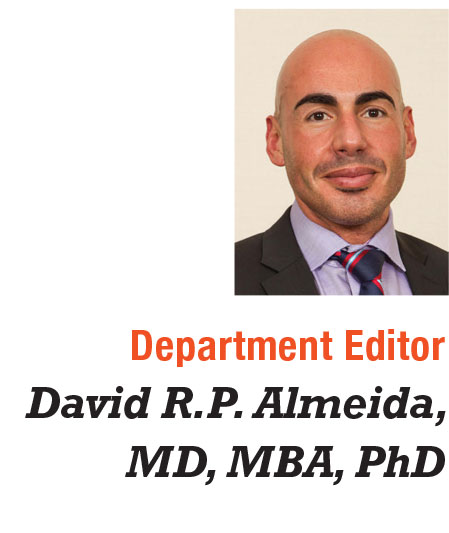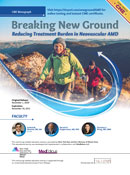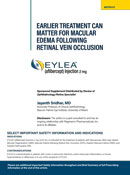 |
|
Bio Dr. Almeida is a vitreoretinal surgeon at Erie Retinal Surgery in Erie, Pa. DISCLOSURE: Dr. Almeida reports no relevant financial relationships. Twitter: @davidalmeidamd Email: [email protected] |
In the last installment we welcomed 2022 by surveying the critical productivity applications for social media use by vitreoretinal specialists and physicians. Today, as we embark on the nostalgic “back to school” part of the year, I’ll review two emerging and significant upsides of social media directly relevant to retina specialists, ophthalmologists and physicians.
Health literacy and misinformation
Eighty percent of cancer patients use social media to connect with peers.1 For health organizations, more than 80 percent of state health departments have social media accounts.2 Moreover, we know that our patients routinely seek out health information on social media. In fact, this is the central tenet why we, as physicians, deploy social media.
Our promotion of valid health content and our role as medical knowledge translator can serve to improve health literacy and counteract misinformation.3 As we’ve discussed previously, with effective and professional (i.e., responsible) social media use, we can guide patients to the best available evidence for disease education and support an informed patient population.
Justice advocacy and equity
Despite the pitfalls social media poses to physicians, it remains a platform of communication that can ameliorate health equity and enhance justice advocacy. Numerous examples exist, from diversity in hospitals to gender equality and universal health care, where retina specialists and physicians can advocate for groups within the medical community and validate their appropriate concerns and questions.4
The versatile nature of social media justice advocacy will remain critical as a means to progress toward health and socioeconomic equity.5 A bona fide use of social media is that it presents us as retinal specialists with an issue-agnostic platform.
Irrespective of whether the issue is pediatric myopia or access to diabetic retinal care, we can be vocal proponents of the causes timely in our local communities and society at large. Remembering to protect patient information, avoid politics and be on the right side of legal requirements are congruent to the necessary high standards of physician social media use.
Bottom line
Social media can be used for various health purposes with numerous benefits. New usages of social media, including the promotion of health literacy and justice advocacy, were discussed here as a reminder of the fundamental benefits social media can provide to patients and communities. RS
REFERENCES
1. Braun LA, Zomorodbakhsch B, Keinki C, Huebner J. Information needs, communication and usage of social media by cancer patients and their relatives. J Cancer Res Clin Oncol. 2019;145:1865-1875.
2. Jha A, Lin L, Savoia E. The use of social media by state health departments in the US: Analyzing health communication through Facebook. J Community Health. 2016;41:174-179.
3. Chiang AL. Social media and medicine. Nat Rev Gastroenterol Hepatol. 2020;17:256–257.
4. Chen J, Wang Y. Social media use for health purposes: Systematic review. J Med Internet Res. 2021;23:e17917.
5. Shi J, Poorisat T, Salmon CT. The use of social networking sites (SNSs) in health communication campaigns: Review and recommendations. Health Commun. 2018;33:49-56.



